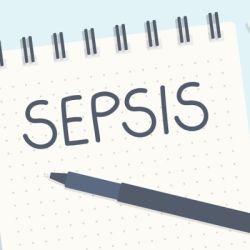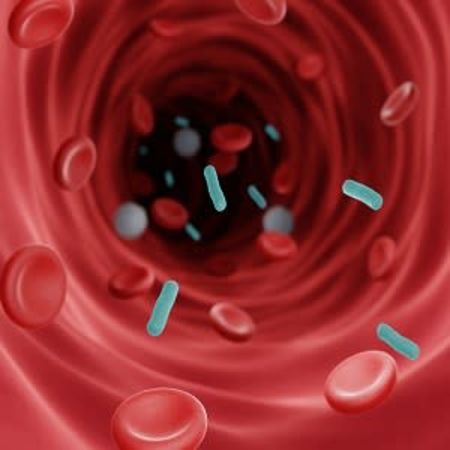The 6th infection Week & Microbiological Spring Meeting, co-organized by the Swedish Association of Infectious Diseases, the Swedish Association of Infectious Nurses and the three microbiological associations, was held in Halmstad, Sweden from May 23 to May 26, 2023. The Congress offered a diverse range of lectures and seminars delivered by world-renowned experts from Sweden and abroad. Aimed at healthcare professionals, the conference provided a unique opportunity for dialog between doctors, nurses, biomedical analysts, microbiologists, molecular biologists, researchers and representatives from the pharmaceutical industry and diagnostic companies
Dr. François Ventura, anesthesiologist and intensive care physician, held a Breakfast seminar, organized with the support of the company Vingmed, on May 25th on the topic “Early identification of sepsis”.
Dr. Ventura explained that the use of biomarkers could improve sepsis diagnosis, especially as clinical evaluation has low specificity. Biomarkers could be useful for screening, diagnostic purposes, monitoring treatment efficacy, risk stratification, and predicting outcomes and mortality. However, finding one biomarker that fits all possible scenarios may not be feasible, therefore using multiple biomarkers may be necessary.
In terms of early diagnosis, Dr. Ventura emphasized the importance of defining what "early" means. Detecting nosocomial sepsis before symptoms would require a biomarker with good sensitivity and positive predictive value. Quick diagnosis at time of clinical suspicion, on the other hand, would require a biomarker with good specificity and negative predictive value to confirm or rule out sepsis.
Dr. Ventura discussed the vast amount of research being conducted on sepsis biomarkers, with over 250 biomarkers identified in studies. He noted that while many biomarkers have been identified, only nine were found to be better than classical biomarkers like CRP and PCT.
Dr. Ventura introduced the ASSURE criteria for an ideal biomarker: Affordable, Sensitive, Specific, User-friendly, Rapid and Equipment free. The Pancreatic Stone Protein (PSP) biomarker meets this ASSURE criteria.
Indeed, Pancreatic stone protein (PSP) is a biomarker that has gained significant interest in recent years as a diagnostic tool for sepsis with more than 45 peer reviewed clinical studies. PSP is a protein that is produced in response to infection, and its levels in the blood have been found to significantly increase in patients with infection, sepsis and septic shock.
One of the main advantages of PSP over other commonly used biomarkers like C-reactive protein (CRP) and procalcitonin (PCT) is that PSP increases early, already 3 to 5 days before clinical symptoms of nosocomial sepsis. Moreover, studies have shown that the combination of PSP and CRP can significantly improve the quick (<1h) sepsis diagnosis at time of clinical suspicion. The use of both biomarkers together in sepsis diagnosis could help clinicians make earlier, quicker and more accurate decisions about antibiotic treatment.
Overall, Dr. Ventura's lecture highlighted the potential of biomarkers in improving sepsis diagnosis, especially for early detection and quick accurate antibiotics administration. However, finding a single biomarker that fits all scenarios may not be possible, and using multiple biomarkers may be necessary combined with clinical score.
Source: Abionic
Image Source: iStock
















